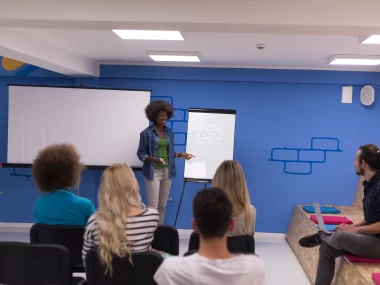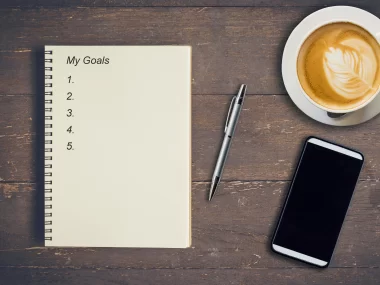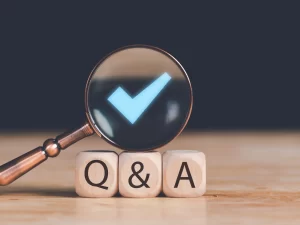Personal growth therapy is a powerful tool for self-discovery, healing, and transformation. As someone who has experienced the profound benefits of this approach firsthand, I can attest to its life-changing potential. In this comprehensive guide, I’ll reveal 15 transformative techniques used in personal growth therapy, drawing from my own experiences and professional insights as a personal development advocate and lifestyle enthusiast.
Cognitive Restructuring in Personal Growth Therapy
One of the foundational techniques in personal growth therapy is cognitive restructuring. This involves:
- Identifying negative thought patterns
- Challenging irrational beliefs
- Replacing unhelpful thoughts with more balanced, realistic ones
Through cognitive restructuring, I’ve learned to reframe my perspective on challenges, leading to increased resilience and positivity.
Mindfulness Meditation in Personal Growth Therapy
Mindfulness meditation is a cornerstone of many personal growth therapy approaches. It helps:
- Increase self-awareness
- Reduce stress and anxiety
- Improve emotional regulation
Incorporating daily mindfulness practice has been transformative in my personal growth journey, allowing me to stay grounded and centered amidst life’s ups and downs.
Expressive Writing in Personal Growth Therapy
Expressive writing is a powerful technique used in personal growth therapy. It involves:
- Journaling about emotional experiences
- Exploring thoughts and feelings through writing
- Using writing as a tool for self-reflection
I’ve found that regular journaling has provided invaluable insights into my patterns, fears, and aspirations.
Body-Focused Techniques in Personal Growth Therapy
Personal growth therapy often incorporates body-focused techniques, such as:
- Progressive muscle relaxation
- Body scan meditation
- Somatic experiencing
These practices have helped me develop a stronger mind-body connection and release stored tension and emotions.
Gestalt Techniques in Personal Growth Therapy
Gestalt therapy techniques are often used in personal growth therapy to increase self-awareness and promote integration. These might include:
- The empty chair technique
- Exaggeration exercises
- Dream work
Exploring these techniques has led to powerful breakthroughs in my personal growth journey.
Visualization in Personal Growth Therapy
Visualization is a powerful tool in personal growth therapy. It can be used for:
- Goal setting and manifestation
- Healing emotional wounds
- Building self-confidence
I’ve found visualization particularly helpful in overcoming fears and manifesting positive changes in my life.
Role-Playing in Personal Growth Therapy
Role-playing exercises are often used in personal growth therapy to:
- Practice new behaviors
- Explore different perspectives
- Work through interpersonal conflicts
Engaging in role-play has helped me develop better communication skills and empathy.
Art Therapy Techniques in Personal Growth Therapy
Art therapy techniques can be incredibly revealing and healing in personal growth therapy. These might include:
- Drawing or painting emotions
- Creating collages representing goals or values
- Sculpting as a form of self-expression
Exploring creativity through art has opened up new avenues of self-discovery for me.
Psychodrama in Personal Growth Therapy
Psychodrama techniques can be powerful tools in personal growth therapy. These might involve:
- Reenacting past events
- Exploring potential future scenarios
- Working through unresolved conflicts
While initially challenging, I’ve found psychodrama to be incredibly cathartic and insightful.
Cognitive Behavioral Therapy (CBT) in Personal Growth Therapy
CBT techniques are often incorporated into personal growth therapy. These include:
- Identifying and challenging cognitive distortions
- Behavioral experiments
- Activity scheduling
CBT techniques have been instrumental in helping me overcome limiting beliefs and develop healthier habits.
Acceptance and Commitment Therapy (ACT) in Personal Growth Therapy
ACT is another approach often used in personal growth therapy. Key components include:
- Developing psychological flexibility
- Clarifying personal values
- Committing to value-aligned actions
ACT has helped me cultivate greater acceptance of my thoughts and emotions while staying committed to my goals.
Positive Psychology Techniques in Personal Growth Therapy
Personal growth therapy often incorporates positive psychology techniques, such as:
- Gratitude practices
- Strength-based exercises
- Cultivating optimism
These practices have significantly boosted my overall well-being and life satisfaction.
Narrative Therapy Techniques in Personal Growth Therapy
Narrative therapy techniques can be powerful tools for personal growth. These might include:
- Externalization of problems
- Identifying alternative stories
- Reauthoring life narratives
Through narrative therapy techniques, I’ve learned to reframe my life story in more empowering ways.
Transpersonal Techniques in Personal Growth Therapy
Transpersonal approaches in personal growth therapy might involve:
- Exploring spiritual or existential questions
- Working with altered states of consciousness
- Connecting with a sense of higher purpose
Engaging with transpersonal techniques has deepened my sense of meaning and connection to something greater than myself.
Ecotherapy in Personal Growth Therapy
Ecotherapy, or nature-based therapy, is gaining recognition in personal growth therapy. It might involve:
- Nature walks or hikes
- Gardening or plant care
- Outdoor meditation or mindfulness practices
I’ve found that connecting with nature through ecotherapy has been profoundly healing and grounding.
Personal growth therapy offers a rich tapestry of techniques and approaches for self-discovery, healing, and transformation. By exploring these 15 transformative techniques, you can embark on a profound journey of personal development and emotional well-being.
As someone who has experienced the power of personal growth therapy, I can attest to its potential to create lasting positive change. It has helped me overcome limiting beliefs, heal emotional wounds, and cultivate greater self-awareness and authenticity.
Remember, personal growth therapy is a deeply individual process. What works for one person may not resonate with another. Be patient with yourself as you explore these techniques, and don’t hesitate to seek guidance from a qualified therapist or counselor.
Embrace this journey with an open mind and heart. The insights and growth you’ll experience through personal growth therapy can ripple out into all areas of your life, leading to greater fulfillment, stronger relationships, and a deeper sense of purpose.
Frequently Asked Questions:
-
Q: How long does personal growth therapy typically take to see results?
A: The timeline for seeing results can vary greatly depending on individual circumstances and goals. Some people may experience shifts after just a few sessions, while others may engage in personal growth therapy for months or even years for deeper, long-term transformation.
-
Q: Is personal growth therapy the same as traditional psychotherapy?
A: While there can be overlap, personal growth therapy often focuses more on self-improvement and reaching one’s potential, rather than primarily addressing mental health disorders. However, many techniques used in personal growth therapy are also used in traditional psychotherapy.
-
Q: Can I practice personal growth therapy techniques on my own, or do I need a therapist?
A: Many personal growth therapy techniques can be practiced independently, such as journaling or mindfulness meditation. However, working with a trained therapist can provide valuable guidance, support, and insights, especially when dealing with deeper issues or trauma.
-
Q: How do I choose the right personal growth therapy approach for me?
A: The best approach often depends on your specific goals, preferences, and what resonates with you. It can be helpful to research different techniques, try out various approaches, and potentially consult with a therapist to find the best fit for your needs.
-
Q: Can personal growth therapy help with specific issues like anxiety or relationship problems?
A: Yes, personal growth therapy can be beneficial for a wide range of issues, including anxiety, depression, relationship challenges, and more. The focus is often on developing coping skills, increasing self-awareness, and fostering personal development to address these concerns.






